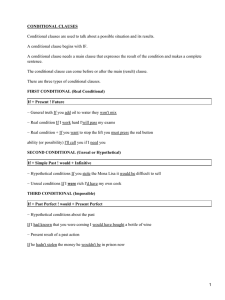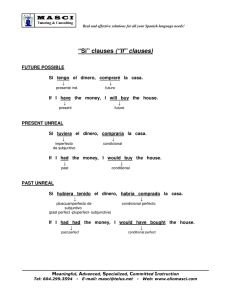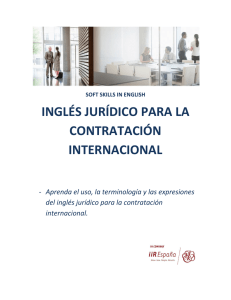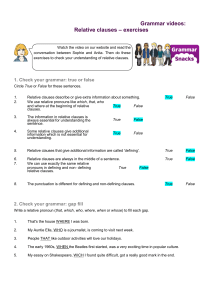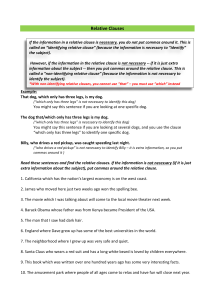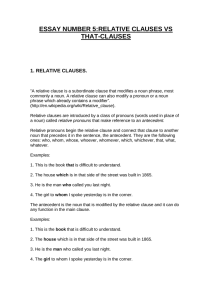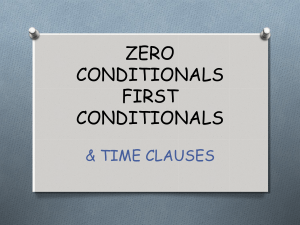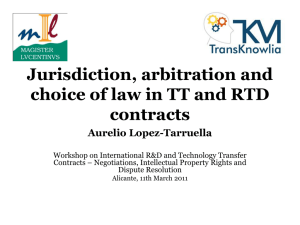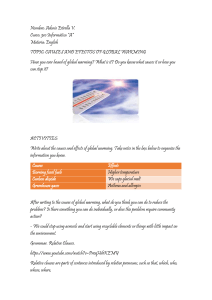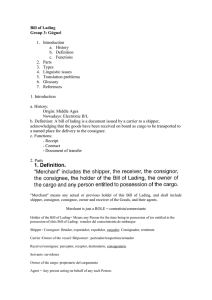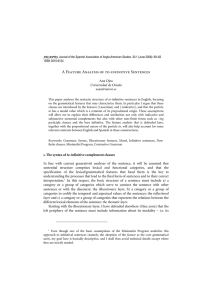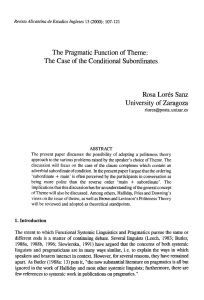Si Clauses - Spanish If-Then Clauses: Possible or Likely Situations
Anuncio
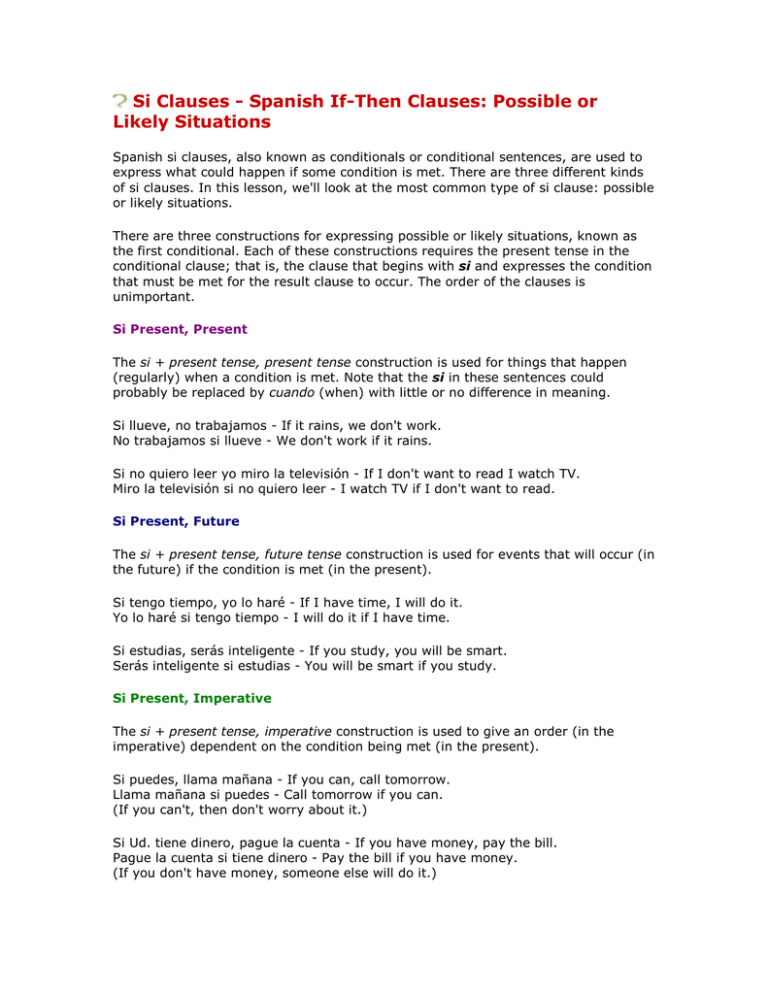
Si Clauses - Spanish If-Then Clauses: Possible or Likely Situations Spanish si clauses, also known as conditionals or conditional sentences, are used to express what could happen if some condition is met. There are three different kinds of si clauses. In this lesson, we'll look at the most common type of si clause: possible or likely situations. There are three constructions for expressing possible or likely situations, known as the first conditional. Each of these constructions requires the present tense in the conditional clause; that is, the clause that begins with si and expresses the condition that must be met for the result clause to occur. The order of the clauses is unimportant. Si Present, Present The si + present tense, present tense construction is used for things that happen (regularly) when a condition is met. Note that the si in these sentences could probably be replaced by cuando (when) with little or no difference in meaning. Si llueve, no trabajamos - If it rains, we don't work. No trabajamos si llueve - We don't work if it rains. Si no quiero leer yo miro la televisión - If I don't want to read I watch TV. Miro la televisión si no quiero leer - I watch TV if I don't want to read. Si Present, Future The si + present tense, future tense construction is used for events that will occur (in the future) if the condition is met (in the present). Si tengo tiempo, yo lo haré - If I have time, I will do it. Yo lo haré si tengo tiempo - I will do it if I have time. Si estudias, serás inteligente - If you study, you will be smart. Serás inteligente si estudias - You will be smart if you study. Si Present, Imperative The si + present tense, imperative construction is used to give an order (in the imperative) dependent on the condition being met (in the present). Si puedes, llama mañana - If you can, call tomorrow. Llama mañana si puedes - Call tomorrow if you can. (If you can't, then don't worry about it.) Si Ud. tiene dinero, pague la cuenta - If you have money, pay the bill. Pague la cuenta si tiene dinero - Pay the bill if you have money. (If you don't have money, someone else will do it.) Si Clauses - Spanish If-Then Clauses: Unlikely or Currently Contrary Situations Spanish si clauses, also known as conditionals or conditional sentences, are used to express what could happen if some condition is met. There are three different kinds of si clauses. In this lesson, we'll look at the second most common type of si clause: unlikely or currently contrary situations. I call these "currently contrary" because the situation described is not currently true. But if the situation changed, the result clause would be able to occur. The currently contrary si-clause, known as the second conditional, is expressed as follows: the condition clause (which starts with si) requires the imperfect subjunctive, while the result clause takes the conditional. The order of the clauses is unimportant. For example... Si tuviera dinero, iría contigo - If I had money, I would go with you. Iría contigo si tuviera dinero - I would go with you if I had money. (I don't have any money so I can't go, but if I did [currently contrary], I would be able to.) Si fueras con nosotros, podrías ver tu hermano. - If you went with us, you could see your brother. Podrías ver tu hermano si fueras con nosotros. - You could see your brother if you went with us. (You say you don't want to go with us, so you won't see your brother, but if you did go with us [currently contrary], you would see him.) Si Clauses - Spanish If-Then Clauses: Impossible Situations Spanish si clauses, also known as conditionals or conditional sentences, are used to express what could happen if some condition is met. There are three different kinds of si clauses. In this lesson, we'll look at the least common type of si clause: impossible situations. This construction is used when referring to something that would have happened if some condition had been met. Since the condition was not met, the result clause is impossible. The impossible si-clause, known as the third conditional, is expressed as follows: the condition clause (which starts with si) requires the pluperfect subjunctive, while the result clause takes either the pluperfect subjunctive or the conditional perfect. The order of the clauses is unimportant. For example... Si lo hubiera sabido, habría ido contigo. - If I had known, I would have gone with you. Habría ido contigo si hubiera sabido - I would have gone with you if I had known. (I hadn't known, so I didn't go with you, but if I had [impossible], I would have.) ¿Habrías comprado el libro si te hubiera dicho? - Would you have bought the book if I had told you? ¿Si te hubiera dicho, habrías comprado el libro? - If I had told you, would you have bought the book? (I hadn't told you, so you didn't by the book, but if I had [impossible], would you have?) Ejercicio: 1. If I were rich, I would buy a house. 2. If you're not tired, tell me a story. 3. We would have eaten if they had been ready. 4. If she gives you the money, will you buy a car? 5. I will go to the market if you do the dishes. 6. If he's happy, he laughs a lot. 7. If they had wanted bread, they would have told me. 8. Your brothers would cry if you lost. 9. If you have the camera, take a picture. 10. Will we sell the house if you lose your job?
